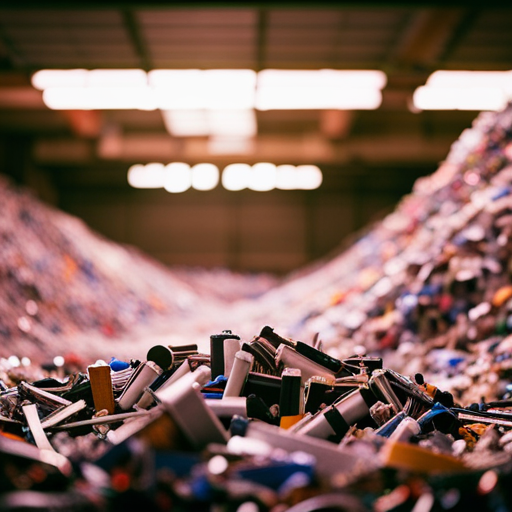Are you aware that your old refrigerator filters can be recycled? By throwing them away, you are contributing to limited landfill space and wasting reusable materials. Recycling old filters is not only environmentally beneficial but also economically viable.
In this article, you will learn about the benefits of recycling refrigerator filters and the various options available for doing so. Recycling your fridge filters is a simple yet effective way to reduce waste and conserve resources. By recycling, you are helping to extend the life of the materials used in the filter, which would otherwise end up in a landfill.
Additionally, recycling reduces the need for new materials to be extracted and manufactured, which saves energy and reduces carbon emissions. In the following paragraphs, we will explore the different options available for recycling your fridge filters and how you can take advantage of them.
Key Takeaways
– Old refrigerator filters can be recycled instead of being thrown in the garbage, reducing landfill space and reusing materials that would otherwise be wasted.
– Recycling options include sending filters back to the manufacturer, finding a third-party recycler, or using local government programs.
– Whole-house filters can replace the need for a refrigerator filter, but still need to be managed and replaced.
– Many leading refrigerator brands offer recycling programs and incentives, and there are independent recycling options available such as Recyclewaterfilters.
Why Recycle Filters?
You should recycle your old refrigerator filters instead of throwing them away to reduce landfill space and minimize environmental impact. When you dispose of filters in the trash, they end up in landfills where they take up space and release harmful chemicals into the environment.
Recycling old filters, on the other hand, reuses materials and reduces waste. Recycling refrigerator filters is a simple way to make a positive impact on the environment. When filters are recycled, their components are separated into various materials that can be reused or transformed into new products.
This reduces the need for raw materials and minimizes the amount of waste that ends up in landfills. Recycling also helps to conserve energy and reduce greenhouse gas emissions associated with manufacturing new materials.
So, instead of tossing your old filters in the trash, take the time to recycle them and help protect our planet.
Options for Recycling
Consider exploring options such as manufacturer or third-party recycling programs, as well as local government initiatives, to properly dispose of your used refrigerator filters and reduce environmental impact. Recycling benefits not only the environment but also saves landfill space by reusing materials that would otherwise go to waste.
The recycling process for refrigerator filters involves separating the plastic components and activated carbon, both of which can be recycled. The separated materials can then be reused in consumer products, sent to scrap yards for reuse, or transformed into products designed for consumer use.
By recycling your used fridge filters, you not only help the environment but also contribute to the circular economy by reducing waste and reusing valuable resources.
Alternative Filter Options
An alternative option for improving the quality of your drinking water is to use a whole-house filter. This type of filter works by treating all water coming into your home, not just the water that flows through your refrigerator.
Whole-house filters can remove a wider range of impurities, including sediment, chlorine, and other chemicals. They also last longer than refrigerator filters, only needing to be replaced every few years.
If you’re looking for a more sustainable option, reusable filters are also available. These filters can be cleaned and reused multiple times, reducing waste and saving money in the long run.
Additionally, spent carbon from filters can be recycled at carbon recycling centers. By choosing reusable filters and recycling spent carbon, you can reduce your environmental impact and help save landfill space.
Conclusion
So there you have it – recycling your fridge filters is a simple and effective way to contribute to a more sustainable future. By choosing to recycle, you’re helping to reduce landfill waste and conserve valuable resources.
Plus, with so many options available, it’s easier than ever to do your part. Whether you choose to recycle through a manufacturer’s program or use alternative filter options, you can feel confident that you’re making a positive impact on the environment.
So next time you go to toss out your old filter, consider recycling instead – every little bit helps!




